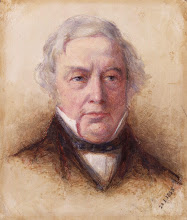MORE ON ANARCHISM
A good intellectual introduction to anarchism can be gotten by reading Anarchism: A beginner's guide, by Ruth Kinna. Kinna is editor of the journal Anarchist Studies and is a Lecturer in Politics at Loughborough University, UK.
Here is an excerpt: "The clearest statement of anarchist suspicion of utopianism appears in Marie Louise Berneris Journey Through Utopia, an analysis of utopian thought from Plato to Huxley. In this book she argued that the outstanding feature of most utopias is their authoritarianism. With notable exceptions like William Morris's News From Nowhere, utopias promise material and spiritual satisfaction as well as social and economic equality at the cost of foisting on their ideal citizen a unifying moral ideal. Typically, utopias fail what Berneris called the test of art: Herbert Read's standard of individuality and social experimentation. Some anarchists have taken the critique further, rejecting utopianism in principle. It is not so much the contents of utopias that upsets these anarchists but the very idea of perfection--whether it applies to the social order or the framing of personality. As Rudolph Rocker argues, anarchism 'is no patent solution for all human problems, no Utopia of a perfect social order . . . since, on principle, it rejects all absolute schemes and concepts.' A similar view informs a recent critique of Zerzan. Zerzan's treatment of primitive society suggests an 'idealized, hypostatized vision of the past' that is at odds with critical self-understanding of the social and natural world that informs primitivist critique. It suggests a recommendation for preconceived ideals in a way that constrains free thought'.".

